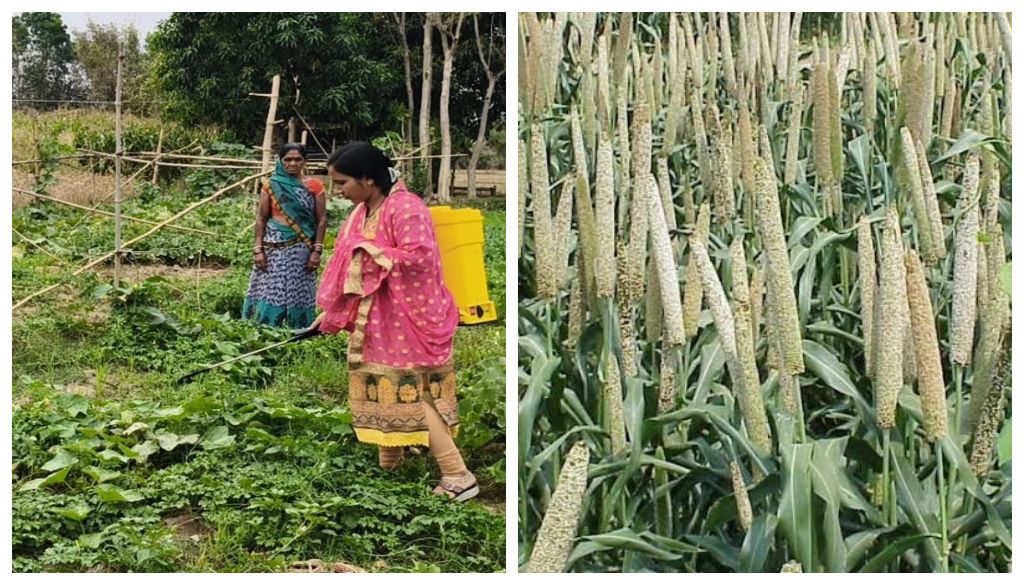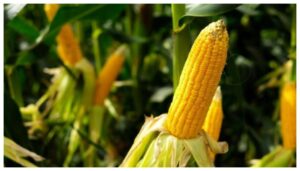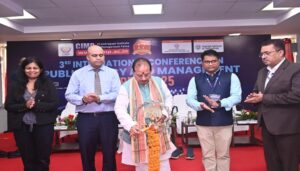
Gaya/ Patna: In the once restive hills of Bihar’s Magadh region—where Maoist voices once echoed through the valleys—a quieter, determined force has taken root. Her name is Saroj Devi, and from the modest confines of Ramchak village in Gaya’s Dumaria block, she has led a grassroots revolution, not with slogans, but with seeds.
Widely hailed as Bihar’s ‘Millet Woman’, Saroj Devi has not only transformed her family’s fortunes through sustainable agriculture, but has also galvanised over 5,000 women across 30 villages to return to their roots—quite literally. Her mission: to revive millet cultivation and champion climate-resilient crops in a region often overlooked by agrarian reform narratives.
A decade ago, Saroj Devi turned away from high-input, water-intensive farming and began cultivating traditional millets—kodo, sawa, mandua and bajra—along with pulses like kulthi dal and oilseeds such as soybean. The decision was sparked by a series of training sessions with agricultural scientists, and a realisation that millet farming not only suited the region’s ecology, but also held the key to food security and women’s economic independence.
“At first, people laughed,” she recalls. “They said farming is no place for women. But I believed in what I was doing.” That belief, tempered by relentless effort, eventually silenced critics and turned sceptics—including her own husband—into allies.
Together, they established the Navjagran Gramin Vikas Samiti, a grassroots organisation that now works across Dumaria, Imamganj and Banke Bazar blocks. The collective supports women farmers with training, seed distribution, and market access, helping them move away from hybrid crops that yield less profit and demand more water.
Saroj Devi’s work has begun to receive recognition beyond the fields. On March 11, she was honoured by Bihar Governor Arif Mohammad Khan during an agricultural fair hosted by Bihar Agricultural University, Sabour, for her contribution to seed production and women’s empowerment in agriculture.
Her recent millet seed exhibition at Krishi Vigyan Kendra Amas drew interest from agricultural scientists, and she has now been recommended for a state-level award.
From just five bighas of land, Saroj Devi continues to produce a rich harvest of traditional crops while cultivating a broader movement rooted in resilience, health, and self-reliance. Her journey not only reflects India’s renewed push towards millets and nutrition, but also demonstrates the power of one woman to reimagine farming as an instrument of change.





